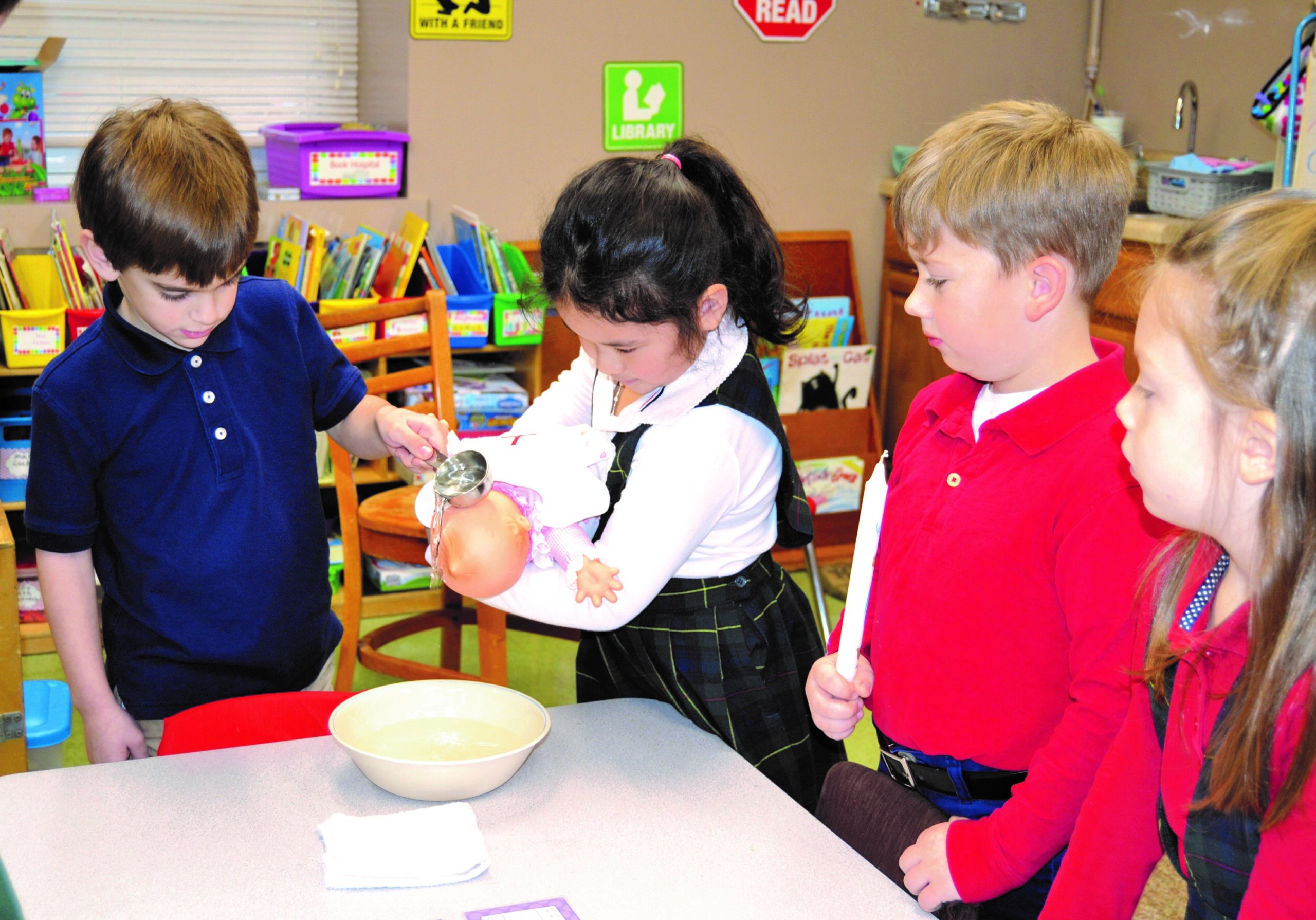
Religious education programs, such as learning about the sacraments, are among many programs funded by the Catholic Stewardship Appeal. (Catholic Herald file photo)
Pope Francis once famously likened the Church to a “field hospital,” tending to the sick and wounded souls of mankind. If that is true, it could also be said that those serving in catechetical ministries must function as nurses, doctors and medics — highly trained practitioners engaging in care at the front lines.
Maintaining standards of excellence in catechesis, ensuring that ministers to youth and adults alike have the resources they need to function as so many little field hospitals throughout southeastern Wisconsin, that’s the job of the Office for Evangelization and Catechesis, and it’s a job they could not do without funding from the Catholic Stewardship Appeal.
“It’s really important that people in parishes of all different sizes and locations in the diocese have access to these resources — that it’s not just a select few parishes who are well-resourced,” said Gary Pokorny, director of evangelization and catechesis — childhood for the archdiocese.
Most parishes don’t have enough people on staff serving in religious education ministry. That’s where the staff at the Office for Evangelization and Catechesis comes in, helping to fill some of the gaps.
“People don’t realize how many lives we touch in catechetical ministry, and that often we are one or two people at each parish,” said Maureen Rotramel, director of faith formation and pastoral care at St. John XXIII Parish in Port Washington. “We have to wear a lot of hats. We need the support of the archdiocesan central offices. We’re the boots on the ground, working with families on a regular basis, working with young people, preparing people for sacraments.”
The Office for Evangelization and Catechesis provides training, continuing education, networking opportunities, consultations, financial support and more to parishes throughout the archdiocese.
“People who are supporting us through the CSA are helping us reach a variety of parishes — city parishes, rural parishes, multicultural parishes,” Pokorny said. “We serve in 10 counties. We serve parishes that are in clusters, multi-parish communities, parishes that have a lot of kids and families, parishes that don’t. We serve parishes that are a mix of ethnic and racial groups, parishes that are predominantly Hispanic, parishes that are largely English-speaking. We try to make ourselves available and helpful to parishes in each of those situations.”
In addition to the annual Catechetical Conference each summer, the Office for Evangelization and Catechesis offers regular professional development opportunities where catechists, directors of religious education and other parish staff members and volunteers can be exposed to new ideas and innovative models of instruction.
It was at one such gathering that Mary Jo Hennemann, director of religious education at St. James in Franklin, was first exposed to the idea of a “family model” for catechesis, where parents and children grades K through 12 receive formation alongside one another. Her parish made the decision to switch to the family model for the 2021-22 school year, and she described the support of Dr. Kathie Amidei, who works as a consultant for the Office for Evangelization and Catechesis, as invaluable.
“She even came to our parish to look at the physical space,” said Hennemann.
New catechetical leaders also receive vital support and training through the office’s Essentials for Catechetical Ministry program, which meets monthly. Christien Immel, co-director of Christian formation at the Sheboygan South Catholic Parishes, said the program has provided her with “the information, support and materials I need for a successful ministry.”
“I now have a binder full of information for reference at my fingertips, a better understanding of the resources available to me, and a network of other talented and experienced catechetical leaders that I can consult with when the need arises,” said Immel.
“In ministry, it is vital that we meet the people who come through our doors wherever they are on their faith journeys,” said Hennemann. “Meeting these people where they are at can promote questions about how best to help them — whether it’s a safe environment question, a curriculum question, a canonical question, a liturgical celebration question. It’s nice to have people who are ready and willing to help answer your questions and offer guidance, ensuring that what we do is in line with Church teaching, Canon Law and archdiocesan guidelines, while still being pastoral to the people who come through our doors.”
